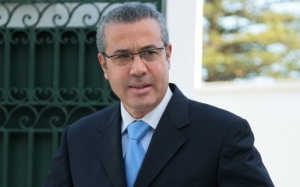
Some fear that the repercussions of tensions between Russia and the West over Ukraine might aggravate cracks and strains in the structure of the edifice of the global order. Since the end of the Cold War, it has proved to be shaky in various regions and parts of the world.
The Egyptian newspaper “Al-Haya al-Yaum” laments that the introduction of Western sanctions against Moscow and the souring of relations between the West and Russia calls into question cooperation in the fight against international terrorism and spread of weapons of mass destruction in the Middle East.
“Al Bawaba” portal, quite popular in the Arab world, is considering the negative effects that the West’s steps against Russia might have on the regional economic interests.
The issue relates to the countries that are the largest importers of grain from Russia and Ukraine. If more severe sanctions are imposed, these countries could be affected by price increase for this commodity by alternative grain producers.
On the other hand, it is clear that in the face of the changing environment and fierce competition in the market, it would be inconvenient for the Arabs to surrender their advantages and entangle themselves in the fray with those who want to pinch Moscow for its position on the Ukrainian crisis.
After Russia took countermeasures concerning food commodities import from the West, a number of farmers in the Middle East have turned their attention to the Russian market. The Moroccan Association of Producers and Exporters of Fruits and Vegetables welcomed Russia’s decision to import agricultural products from countries that did not support American and EU sanctions against Moscow. The organization confirmed its determination to satisfy Russian consumers’ demand for both agricultural products and seafood.
Morocco was joined by Lebanon. Mohamad Choucair, the president of the of Chambers of Commerce, Industry and Agriculture of the country, said Lebanon could contribute by supplying various fruits and vegetables as well as dairy products. The opportunities for Lebanon are very considerable given the fact that Russia’s requirements and standards are the same as those of the EU.
A few days ago, the Tunisian ministers of agriculture and foreign trade visited Moscow and demonstrated their willingness to step up their agricultural commodities export. Tunisia currently exports to Russia about 8,000 tons of such products annually, whereas the export to the EU is over 200,000 tons. So Tunisia has resources to increase exports to Russia.
The flow of Egyptian agricultural products to Russia has already grown and will keep growing in the near future, according to a representative of the Egyptian Ministry of Industry and Foreign Trade.
It seems that, in the Arab world attitudes towards the sanctions against Russia are also rooted in the historical background. In the past, the Arabs were repeatedly subjected to pressures of various kinds, went through economic blockade imposed by the West for political reasons.
For example, in 1956, after Egypt nationalized the Suez Canal, the West took out its ship pilots, hoping to disrupt the canal functioning. Soviet seamen came to Egypt’s aid. Because of Algeria’s nationalization of mining enterprises in 1966, French specialists working for them were recalled. Once again, those were Russian engineers and technicians who ensured uninterrupted operation of the facilities.
In 1972, the Baghdad authorities nationalized the Iraq Petroleum Company, which caused a negative reaction comparable to that during the Suez crisis in Egypt. The Soviet Union provided specialists and tankers, as well as increased purchases of Iraqi oil. Similar examples can be found in Syria, Libya and Iran.
It was in the eighties of the twentieth century when the trade, investment and other relations between Moscow and the Arab region reached their peak.
In the 1990-s, these relations faced a decline and stagnation before embarking on a gradual recovery. Over the past 10 years, the volume of trade between Russia and the Arab world increased manifold and approached $14 billion by the end of 2013.
Arab mass media have been taking a close look at Russia in the light of the eastern swing in the Russian policy.
According to “Al-Quds al-Arabi” newspaper, it is obvious that a number of countries in the region have been suffering from the economic consequences of the Arab Spring since 2011 and are looking for a way out of the crisis. The newspaper is urging to take advantage of the opportunity that now presents itself to build Arab partnership with Moscow in economic exchange, investment and entrepreneurship.
Yuri Zinin is a Senior Research Fellow at MGIMO and a columnist for the online magazine “New Eastern Outlook”.
